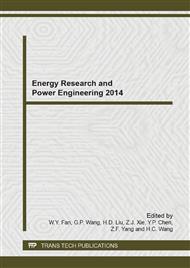p.291
p.295
p.299
p.303
p.311
p.315
p.322
p.326
p.330
Fault-Tree Analysis for Power Gird Emergency Logistics System under Large-Scale Natural Disaster
Abstract:
Power grid, one of the critical infrastructures, is a vital component of the world’s energy supply. Once large-scale natural disaster occurs, it is inevitable to meet unexpected faults on emergency logistic. Fault-tree analysis (FTA) is a risk estimation tool to describe and model causal interactions and logical relationships between undesired events in a system Taking uncertain situation and response failure into consideration, this paper proposed a fault-tree analysis on PG-ELS with fuzzy probabilistic confidence. The most critical failure mode is identified using the ranking method based on interval number.
Info:
Periodical:
Pages:
311-314
Citation:
Online since:
July 2014
Authors:
Price:
Сopyright:
© 2014 Trans Tech Publications Ltd. All Rights Reserved
Share:
Citation:


